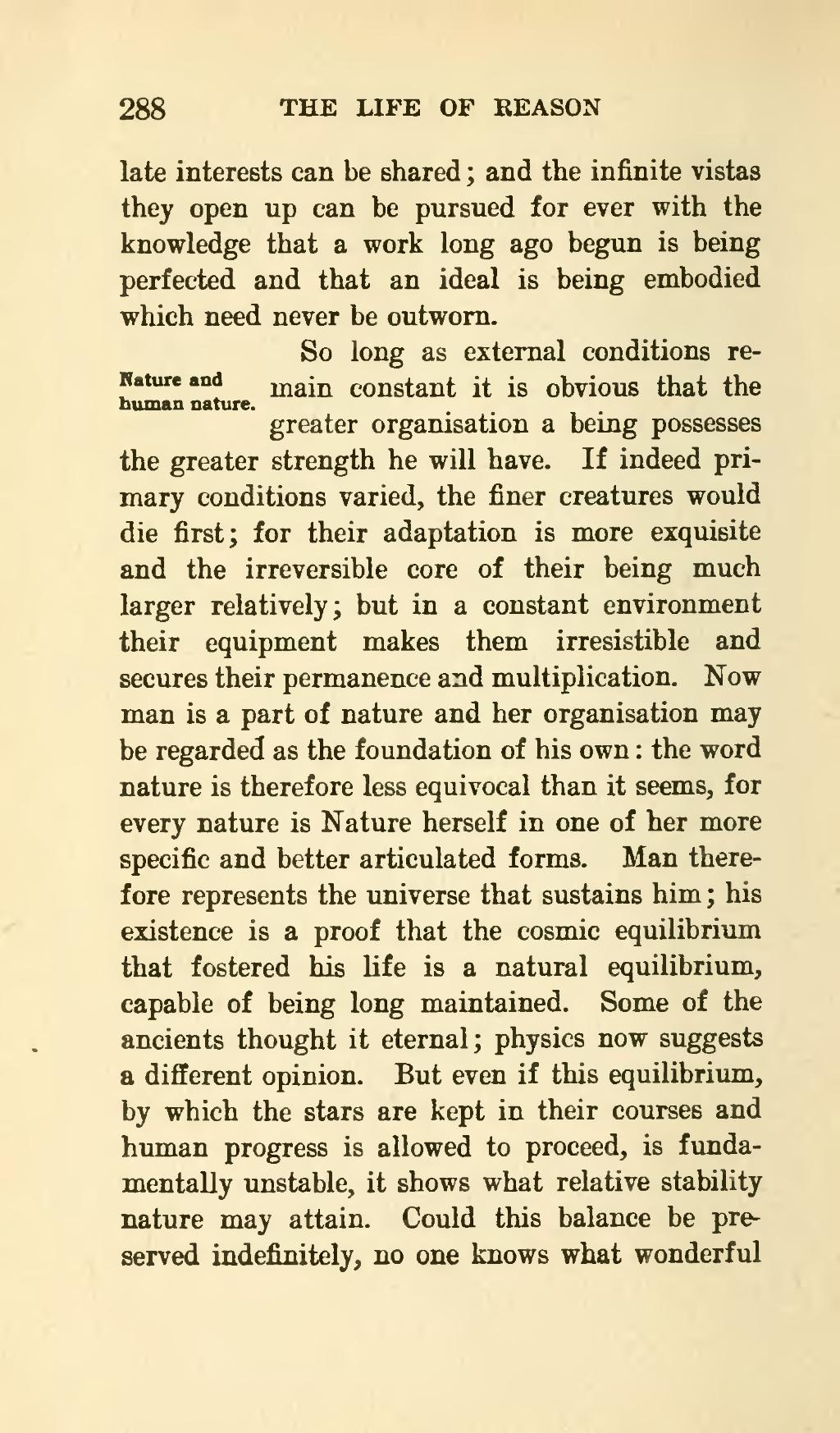late interests can be shared; and the infinite vistas they open up can be pursued for ever with the knowledge that a work long ago begun is being perfected and that an ideal is being embodied which need never be outworn.
So long as external conditions remain constant it is obvious that the greater organisation a being possesses the greater strength he will have. If indeed primary conditions varied, the finer creatures would die first; for their adaptation is more exquisite and the irreversible core of their being much larger relatively; but in a constant environment their equipment makes them irresistible and secures their permanence and multiplication. Now man is a part of nature and her organisation may be regarded as the foundation of his own: the word nature is therefore less equivocal than it seems, for every nature is Nature herself in one of her more specific and better articulated forms. Man therefore represents the universe that sustains him; his existence is a proof that the cosmic equilibrium that fostered his life is a natural equilibrium, capable of being long maintained. Some of the ancients thought it eternal; physics now suggests a different opinion. But even if this equilibrium, by which the stars are kept in their courses and human progress is allowed to proceed, is fundamentally unstable, it shows what relative stability nature may attain. Could this balance be preserved indefinitely, no one knows what wonderful
